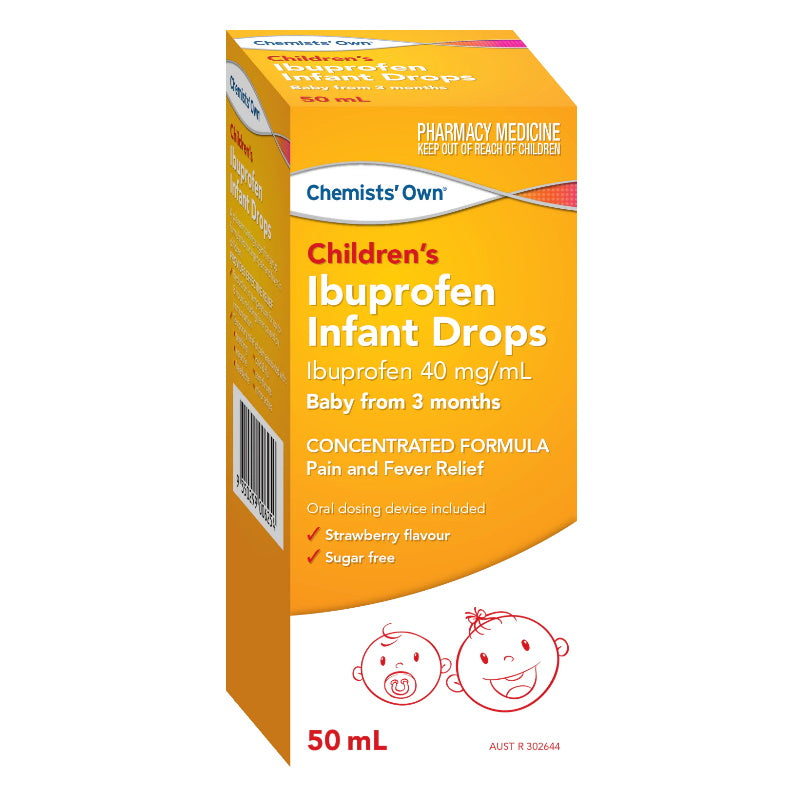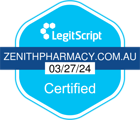Zenith Pharmacy
Chemists Own Childrens Ibuprofen 3 Months+ Infant Drops 50mL
Chemists Own Childrens Ibuprofen 3 Months+ Infant Drops 50mL
Couldn't load pickup availability
A pleasant tasting sugar free syrup formulated to target pain and fever in children. Provides effective relief and reduction in temperature for up to 8 hours including fever caused by immunisation. Provides temporary relief of pain associated with teething, earache, headache, cold & flu, sore throats, minor aches.
Ingredients: Ibuprofen 40 mg/mL.
Directions:
Ages 3-6 months. Average Weight: (6-8kg). Dose: 1.5 – 2.0mL.
Ages 6-12 months. Average Weight: (8-10kg) Dose: 2.0 – 2.5mL.
Ages 12-24 months. Average Weight: (10-12kg). Dose: 2.5 – 3.0mL.
Repeat dose every 6 to 8 hours as necessary. Do not exceed stated dose. Maximum 3 doses in 24 hours. May be given in water or fruit juice if preferred. Children should take plenty of fluids. Do not use for more than 48 hours at a time unless advised by a doctor.
Warnings: 9mL (maximum daily dose) contains 4.5g or maltitol. Products containing maltitol may have a laxative effect or cause diarrhoea. Contains saccharin. Contains benzoates. Also contains sodium salts and maltitol. Seek medical advice before giving to infants aged 3-12 months. Seek medical advice before use if your child: is under 12 months of age. Suffers asthma. Is taking other medicines containing ibuprofen, aspirin or other anti-inflammatory medicines or other medicines that your child is taking regularly. Do not give to children who have: Stomach ulcers or other stomach disorders. Kidney or heart problems. Allergic reactions to aspirin, ibuprofen or other anti-inflammatory medicines. If an allergic reaction develops, stop taking and see your doctor immediately. Ask your doctor or pharmacist before use of the medicine in children suffering from dehydration through diarrhoea and/or vomiting. Do not use if trying to become pregnant, or during the first 6 months of pregnancy, except on doctor’s advice. Do not use at all during the last 3 months of pregnancy. Short term use only. Excessive use can be harmful and increase the risk of heart attack, stroke or liver damage.
Share






